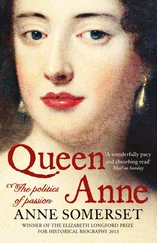Horace Bleackley - Some Distinguished Victims of the Scaffold
Здесь есть возможность читать онлайн «Horace Bleackley - Some Distinguished Victims of the Scaffold» — ознакомительный отрывок электронной книги совершенно бесплатно, а после прочтения отрывка купить полную версию. В некоторых случаях можно слушать аудио, скачать через торрент в формате fb2 и присутствует краткое содержание. Жанр: foreign_antique, foreign_prose, на английском языке. Описание произведения, (предисловие) а так же отзывы посетителей доступны на портале библиотеки ЛибКат.
- Название:Some Distinguished Victims of the Scaffold
- Автор:
- Жанр:
- Год:неизвестен
- ISBN:нет данных
- Рейтинг книги:5 / 5. Голосов: 1
-
Избранное:Добавить в избранное
- Отзывы:
-
Ваша оценка:
- 100
- 1
- 2
- 3
- 4
- 5
Some Distinguished Victims of the Scaffold: краткое содержание, описание и аннотация
Предлагаем к чтению аннотацию, описание, краткое содержание или предисловие (зависит от того, что написал сам автор книги «Some Distinguished Victims of the Scaffold»). Если вы не нашли необходимую информацию о книге — напишите в комментариях, мы постараемся отыскать её.
Some Distinguished Victims of the Scaffold — читать онлайн ознакомительный отрывок
Ниже представлен текст книги, разбитый по страницам. Система сохранения места последней прочитанной страницы, позволяет с удобством читать онлайн бесплатно книгу «Some Distinguished Victims of the Scaffold», без необходимости каждый раз заново искать на чём Вы остановились. Поставьте закладку, и сможете в любой момент перейти на страницу, на которой закончили чтение.
Интервал:
Закладка:
Though not a beauty – for the smallpox, that stole the bloom from the cheeks of many a sparkling belle in hoop and brocade, had set its seal upon her face – the portrait of Mary Blandy shows that she was comely. Still, it is a picture in which there is a full contrast between the light and shadows. Those fine glistening black eyes of hers – like the beam of sunshine that illumines a sombre chamber – made one forget the absence of winsome charm in her features; yet their radiance appeared to come through dark unfathomable depths rather than as the reflection of an unclouded soul. With warmth all blood may glow, with softness every heart can beat, but some, like hers, must be compelled by reciprocal power. Such, in her empty home, was not possible. Even the love and devotion of her parents gave merely a portion of their own essence. From a greedy father she acquired the sacred lust, and learnt from infancy to dream, with morbid longing, of her future dower; while her mother encouraged a hunger for vain and giddy pleasure, teaching unwittingly that these must be bought at the expense of peace, or by the sacrifice of truth. To a girl of wit and intelligence in whose heart nature had not sown the seeds of kindness, these lessons came as a crop of tares upon a fruitful soil. But, as in the case of all women, there was one hope of salvation. Indeed, since the passion of her soul cried out with imperious command that she should fulfil the destiny of her sex, the love of husband and children would have found her a strong but pliable material that could be fashioned into more gentle form. Without such influence she was one of those to whom womanhood was insufferable – a mortal shape where lay encaged one of the fiercest demons of discontent.
Molly Blandy did not lack admirers. Being pleasant and vivacious – while her powers of attraction were enhanced by the rumour of her fortune – not a few of the beaux in the fashionable world of Bath, and county society at Reading, gave homage and made her their toast. In the eyes of her parents it was imperative that a suitor should be able to offer to their daughter a station of life befitting an heiress. On this account two worthy swains, who were agreeable to the maiden but could not provide the expected dower, received a quick dismissal. Although there was nothing exorbitant in the ambition of the attorney and his dame, it is clear that the girl learnt an evil lesson from these mercenary transactions. Still, her crosses in love do not seem to have sunk very deeply into her heart, but henceforth her conduct lost a little of its maidenly reserve. The freedom of the coquette took the place of the earnestness and sincerity that had been the mark of her ardent nature, and her conduct towards the officers of the regiment stationed at Henley was deemed too forward. However, the father, whose reception into military circles no doubt made the desired impression upon his mayor and aldermen, was well satisfied that his daughter should be on familiar terms with her soldier friends. Even when she became betrothed to a captain of no great fortune, he offered small objection on account of the position of the young man. Yet, although the prospect of a son-in-law who held the king’s commission had satisfied his vanity, the old lawyer, who foolishly had allowed the world to believe him richer than he was, could not, or (as he pretended) would not, provide a sufficient dowry. Thus the engagement promised to be a long one. Fate, however, decided otherwise. Very soon her suitor was ordered abroad on active service, and the hope of marriage faded away for the third time.
In the summer of 1746, while no doubt she was sighing for her soldier across the seas, the man destined to work the tragic mischief of her life appeared on the scene. William Henry Cranstoun, a younger son of the fifth Lord Cranstoun, a Scottish baron, was a lieutenant of marines, who, since his regiment had suffered severely during the late Jacobite rebellion, had come to Henley on a recruiting expedition. At first his attentions to Miss Blandy bore no fruit, but he returned the following summer, and while staying with his grand-uncle, General Lord Mark Kerr, who was an acquaintance of the lawyer and his family, he found that Mary was off with the old love and willing to welcome him as the new. All were amazed that the fastidious girl should forsake her gallant captain for this little sprig from North Britain – an undersized spindleshanks, built after Beau Diddapper pattern – in whose weak eyes and pock-fretten features love must vainly seek her mirror. Still greater was the astonishment when ten-thousand-pound Blandy, swollen with importance, began to babble of “my Lord of Crailing,” and the little bugle cap of his dame quivered with pride as she told her gossips of “my Lady Cranstoun, my daughter’s new mamma.” For it was common knowledge that the small Scot was the fifth son of a needy house, with little more than his pay to support his many vicious and extravagant habits. Such details seem to have been overlooked by the vain parents in their delight at the honour and glory of an alliance with a family of title. In the late autumn of 1747 they invited their prospective son-in-law to their home, where, as no one was fonder of free quarters, he remained for six months. But the cruel fate that presided over the destinies of the unfortunate Mary intervened once more. Honest Lord Mark Kerr (whose prowess as a duellist is chronicled in many a page), perceiving the intentions of his unscrupulous relative, made haste to give his lawyer friend the startling news that Cranstoun was a married man.
This information was correct. Yet, although wedded since the year before the rebellion, the vicious little Scot was seeking to put away the charming lady who was his wife and the mother of his child. Plain enough were the motives. A visit to England had taught him that the title which courtesy permitted him to bear was a commercial asset that, south of the Tweed, would enable him to sell himself in a better market. As one of his biographers tells us, “he saw young sparklers every day running off with rich prizes,” for the chapels of Wilkinson and Keith were always ready to assist the abductor of an heiress. Indeed, before his arrival at Henley, he had almost succeeded in capturing the daughter of a Leicestershire squire, when the father, who suddenly learnt his past history, sent him about his business. Still, he persisted in his attempts to get the Scotch marriage annulled, and his chances seemed favourable. Most of the relatives of his wife, who had espoused the losing side in the late rebellion, were fled in exile to France or Flanders. Moreover, she belonged to the Catholic Church, which at that time in stern Presbyterian Scotland had fallen upon evil days. Believing that she was alone and friendless, and relying, no doubt, upon the sectarian prejudices of the law courts, he set forth the base lie that he had promised to marry her only on condition she became Protestant. His explanation to the Blandys, in answer to Lord Mark’s imputation, was the same as his defence before the Scottish Commissaries. The lady was his mistress, not his wife!
Miss Blandy took the same view of the case that Sophy Western did under similar circumstances. Human nature was little different in those days, but men wore their hearts on their sleeve instead of exhibiting them only in the Courts, and women preferred to be deemed complacent rather than stupid. Doubtless old lawyer Blandy grunted many Saxon sarcasms at the expense of Scotch jurisprudence, and trembled lest son-in-law Diddapper had been entangled beyond redemption. Still, father, mother, and daughter believed the word of their guest, waiting anxiously for the result of the litigation that was to make him a free man. During the year 1748 the Commissaries at Edinburgh decided that Captain Cranstoun and the ill-used Miss Murray were man and wife. Then the latter, being aware of the flirtation at Henley, wrote to warn Miss Blandy, and provided her with a copy of the Court’s decree. Great was the consternation at the house on the London road. Visions of tea-gossip over the best set of china in the long parlour at Crailing with my Lady Cranstoun vanished from the old mother’s eyes, while the town clerk forgot his dreams of the baby whose two grand-fathers were himself and a live lord. Nevertheless, the young Scotsman protested that the marriage was invalid, declared that he would appeal to the highest tribunal, and swore eternal fidelity to his Mary. Alas, she trusted him! Within the sombre depths of her soul there dwelt a fierce resolve to make this man her own. In her sight he was no graceless creature from the barrack-room, but with a great impersonal love she sought in him merely the fulfilment of her destiny.
Читать дальшеИнтервал:
Закладка:
Похожие книги на «Some Distinguished Victims of the Scaffold»
Представляем Вашему вниманию похожие книги на «Some Distinguished Victims of the Scaffold» списком для выбора. Мы отобрали схожую по названию и смыслу литературу в надежде предоставить читателям больше вариантов отыскать новые, интересные, ещё непрочитанные произведения.
Обсуждение, отзывы о книге «Some Distinguished Victims of the Scaffold» и просто собственные мнения читателей. Оставьте ваши комментарии, напишите, что Вы думаете о произведении, его смысле или главных героях. Укажите что конкретно понравилось, а что нет, и почему Вы так считаете.












